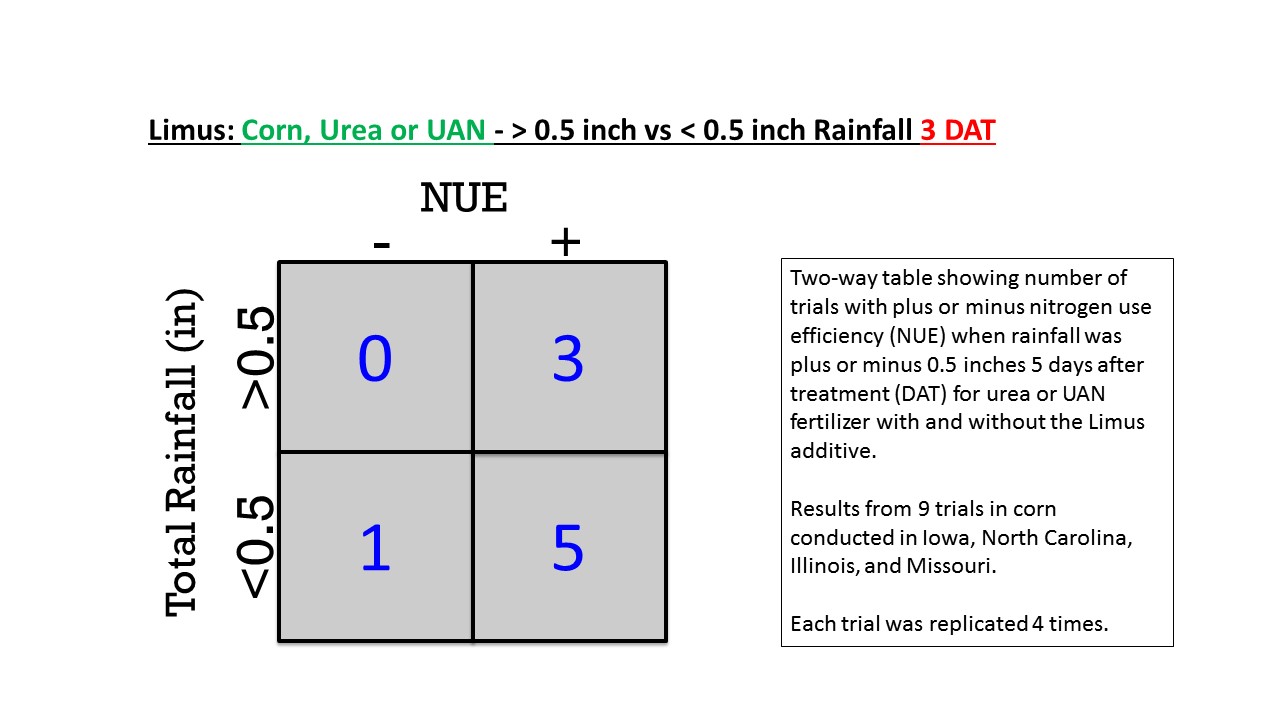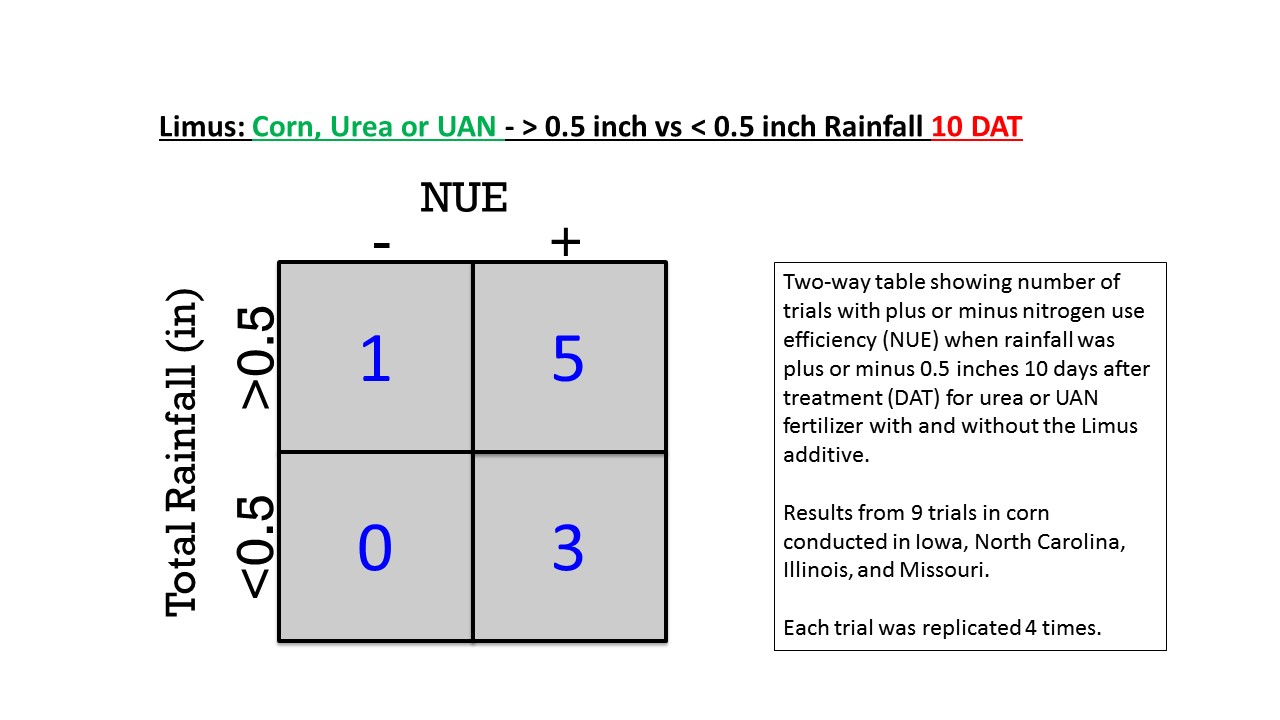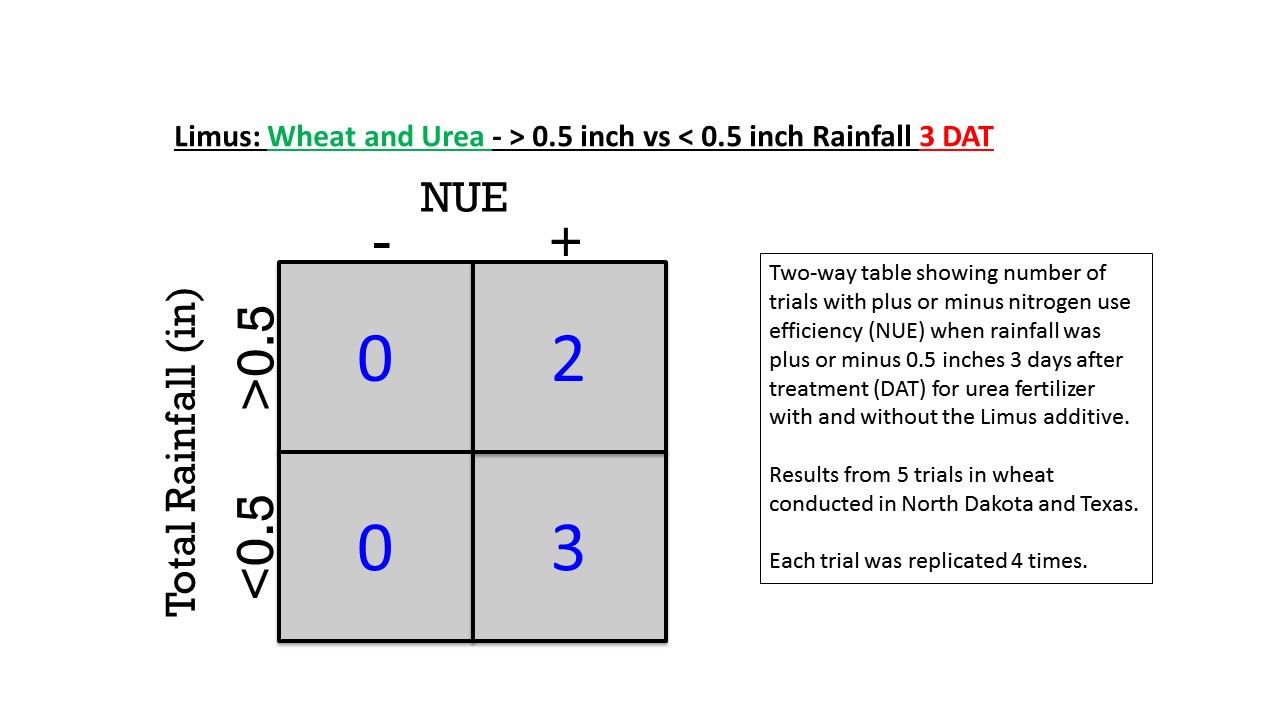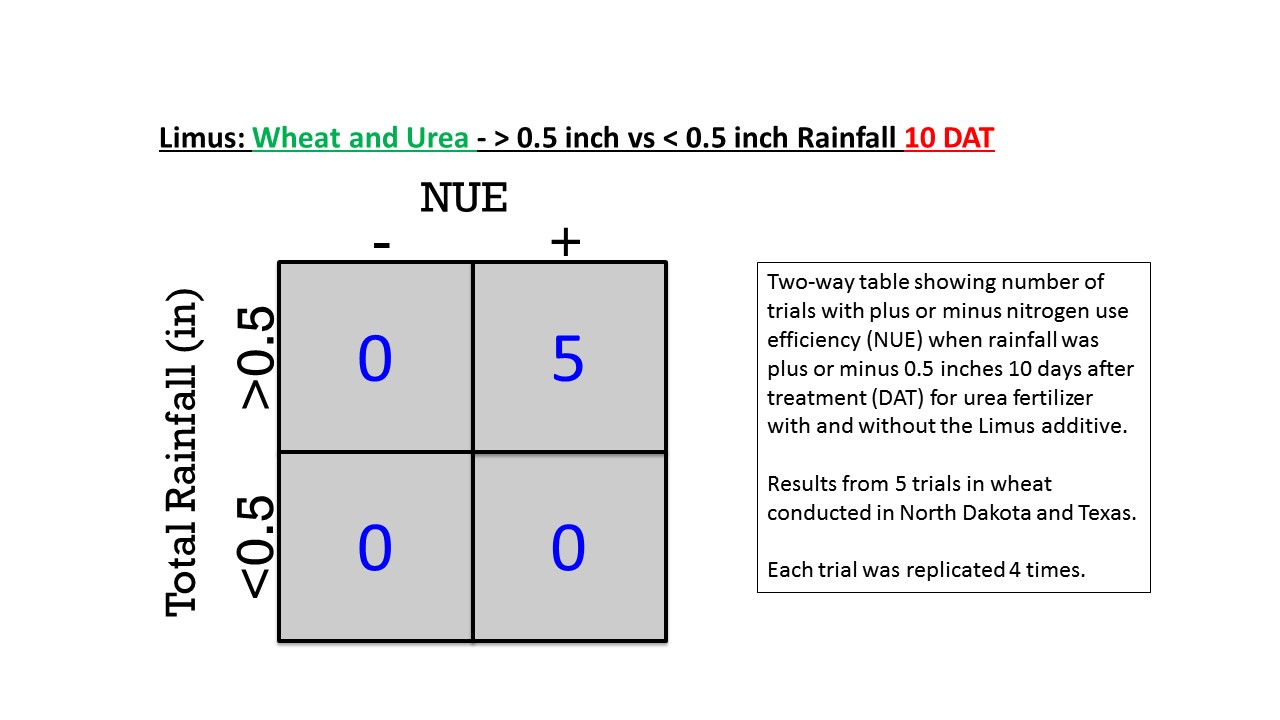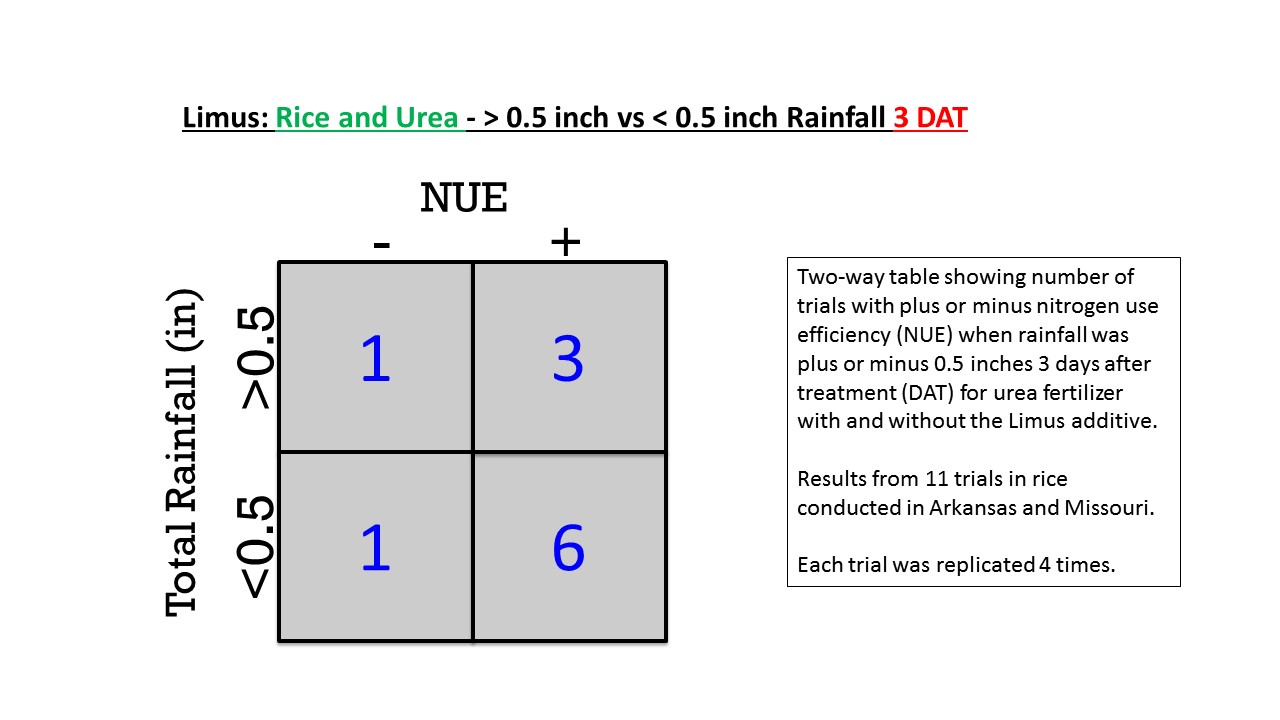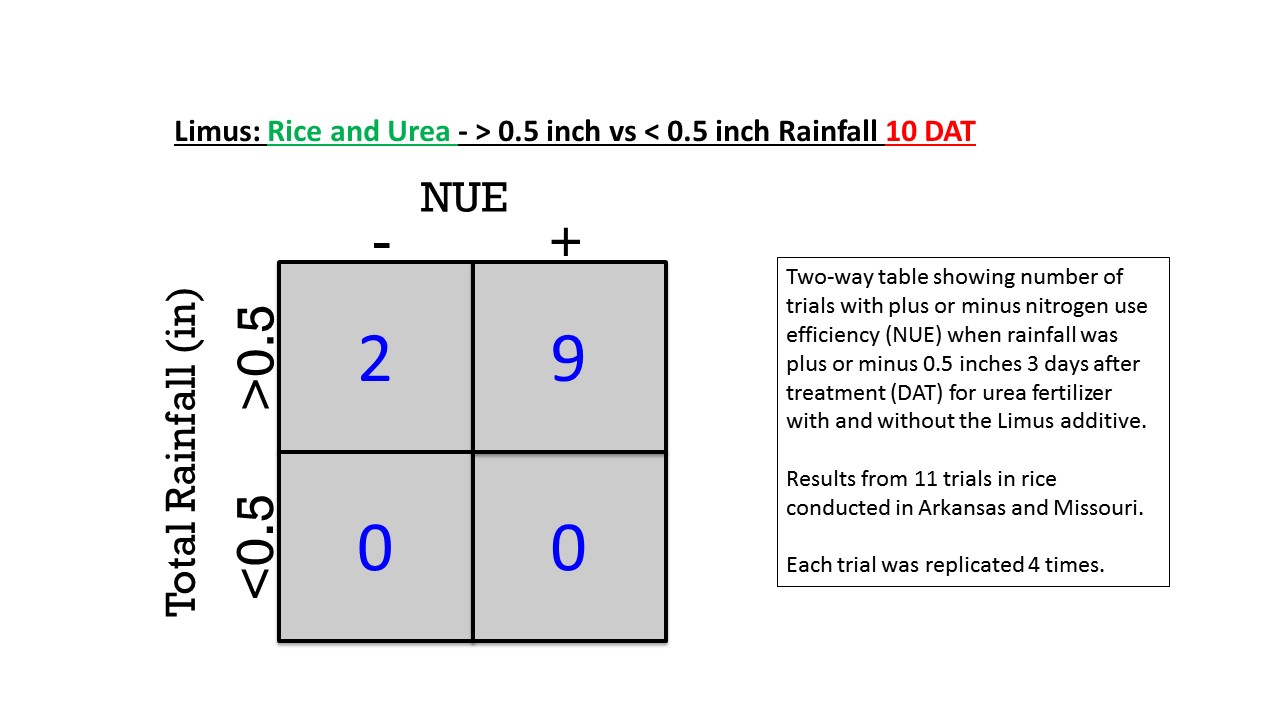Limus® Research Findings
Limus® Nitrogen Management is intended for situations in which volatilization from surface applied urea or UAN is a concern.
Limus® works by blocking the activity of urease enzymes, thus preventing urea from being broken down into volatile ammonia gas (NH3+). Stopping or slowing urease activity at the soil surface allows time for rainfall or irrigation to move the urea deeper into the soil where it is protected.
Beneath the soil surface urea can be converted to ammonium (NH4+) a useable plant-uptake form of nitrogen. If rainfall is not in the immediate forecast and immediate soil incorporation is not possible, Limus® may reduce nitrogen losses due to volatilization. The benefits of the urease inhibitors in Limus® are less likely to be realized when an incorporating rainfall (>0.5”) occurs shortly after application.
Limus® contains two urease inhibitors NBPT (16.88%), the current market standard, and NPPT (5.63%), a newer inhibitor produced by BASF.
There are currently two formulations of Limus®, Limus® Nitrogen Management and Limus® for UAN Nitrogen Management. Limus® Nitrogen Management is intended for use with granular urea and is recommended at a rate of 2-3 quarts / ton of urea. While Limus® for UAN Nitrogen Management is intended for use with UAN solutions and is recommended at rate of 1-1.5 quarts / ton of UAN solution.
